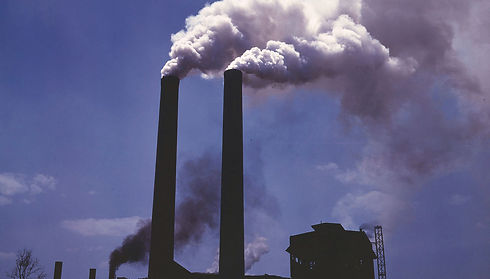Air pollution linked to kidney disease
Air pollution is known to be quite harmful and a recent study shows there is a direct correlation between air pollution and kidney disease. The list of problems associated with air pollution does not stop short of kidney disease. Air pollution has been linked to heart disease, stroke, asthma, cancer, chronic pulmonary disease and other ailments. The American Society of Nephrology followed 2.5 million veterans for eight and a half years and tracked their glomerular filtration rate, which is a measure of kidney function. The kidney’s main function is to filter the blood and extract waste. People inhale tiny particles such as dust, dirt, smoke, soot and liquids within polluted air, which damages the kidneys main function to filter. Researchers found 44,793 new cases of kidney failure could be attributed to high levels of air pollution that surpass the Environmental Protection Agency’s threshold of 12 micrograms per cubic meter of air, which constitutes the maximum level or air pollution considered safe for the public. Even air pollution levels considered to be “safe” have an increased risk and can damage a person’s kidneys, meaning any amount of air pollution, despite how small, can harm the kidneys, just as it would to any other organ, such as the heart, liver, and lungs. An annual increase of 2,438 cases of end-stage kidney disease that requires dialysis was also found. The study shows the overall increase in harmful effects of air pollution on human health.
Air pollution is also considered to be detrimental to people’s health globally. In the region of northern China, air pollution is thought to cut years off life expectancy, due to highly concentrated levels of pollution. Approximately 4.5 billion people around the world are being exposed to high levels of particulate air pollution that are at least twice what the World Health Organization deems safe. The study of northern China’s air pollution showed that for every 10 micrograms per cubic meter of particulate matter pollution, reduced life expectancy by 0.6 years. The Director of Energy Policy Institute at the University of Chicago, Michael Greenstone says, “These results greatly strengthen the case that long-term exposure to particulates are the greatest current environmental risk to human health, with the impact on life expectancy in many parts of the world similar to the effects of every man, woman, and child smoking cigarettes for several decades”.
To reform air pollution, better policies and enforcement are required. As well as knowledge of the harmful effects caused. Other solutions are needed to combat the issue at hand. Air pollution is an issue that affects all and is dangerous to domestic and global health.
